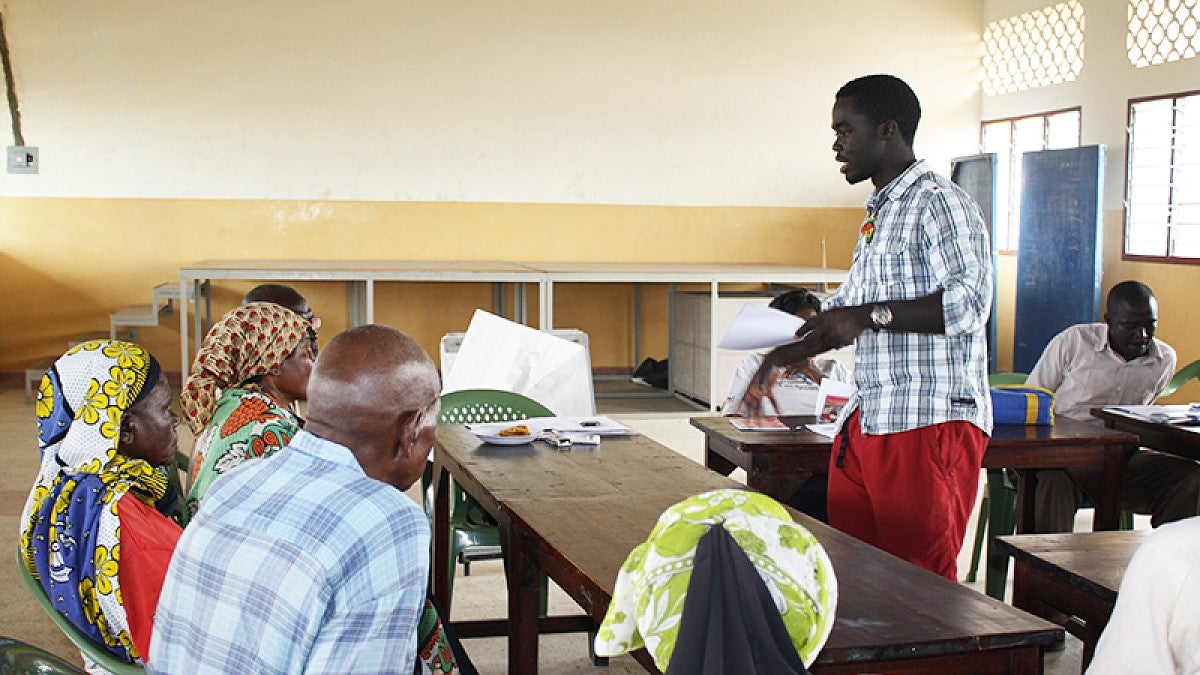A new study will investigate the effect informal social relationships have on the psychological health of older Kenyans experiencing chronic poverty.
The pilot study, led by principal investigator James Muruthi and conducted through the Center for Equity Promotion at the UO College of Education, will be the first of its kind to identify effective social supports for aging and socioeconomically disadvantaged Kenyans.
Muruthi, an assistant professor in both the Prevention Science Program and the Family and Human Services Program, said increasing mental health research in Kenya and Africa is an urgent need. Health research for older Kenyans primarily focuses on communicable diseases such as HIV or malaria. Muruthi’s research focuses on social and psychological health instead.
“I believe that older people are suffering more from noncommunicable diseases such as diabetes, mental health and stress, things that have gone unaddressed,” he said.
Studies have found that older adults experience higher poverty rates than the general population in Kenya.
Few government programs in Kenya provide reliable welfare support for those in poverty, especially older adults. Muruthi’s study will evaluate the informal social relationships that are already effective supports in those communities to prepare for future intervention.
For example, the study seeks to identify whether spouses, religious leaders, friends or neighbors provide the most influential support for psychological health.
“We should leverage what we already have to make sure that our interventions are sustainable,” Muruthi said. “The most consistent and most sustainable for this population is social support-based intervention.”
The study, which received funding from the Mental Research Institute, will survey close to 400 Kenyans age 45 and older who are experiencing poverty in rural and urban regions of the country. Muruthi and his team plan to travel to Kenya during winter term. The team is using community-based research, meaning they will connect with local institutions to distribute information and hold the interview sessions.
For Muruthi, a passion for understanding the health of aging adults guides his career. He had a close relationship with his maternal grandparents growing up. As his grandparents got older and encountered more health issues, Muruthi became frustrated with medical experts who told him his grandparents were sick because of their age.
Those explanations from health professionals were “not satisfactory” to Muruthi. “So I decided to study aging and how people get old,” he said.
Since then, Muruthi has made a mark in his field by specializing in gerontology, the study of aging. He has become a researcher who looks to leverage social capital to enhance the health of marginalized older adults.
Beyond developing research for noncommunicable diseases in older Africans, Muruthi currently researches health and health communication among aging Latino migrant seasonal farm workers, LGBTQ+ adults and Black individuals.
Muruthi is adamant that his research work is a product of his community.
“People will see me and people will see my name, but it's more than me,” he said. “It's the university. It's my department. It's my boss, my staff, my spouse and my children. All those people have to help me out to be who I am today.”
Muruthi also wants his work to bring a spotlight to the work of international scholars at the UO. The Center for Equity Promotion and other departments are conducting research across the globe.
“People who come from continental Africa are doing great research in the University of Oregon,” Muruthi said. “There are a lot of university professors or researchers doing research abroad. That highlights the connections that we have and the rigorous research that goes beyond our boundaries.”
—By Madeline Ryan, College of Education


